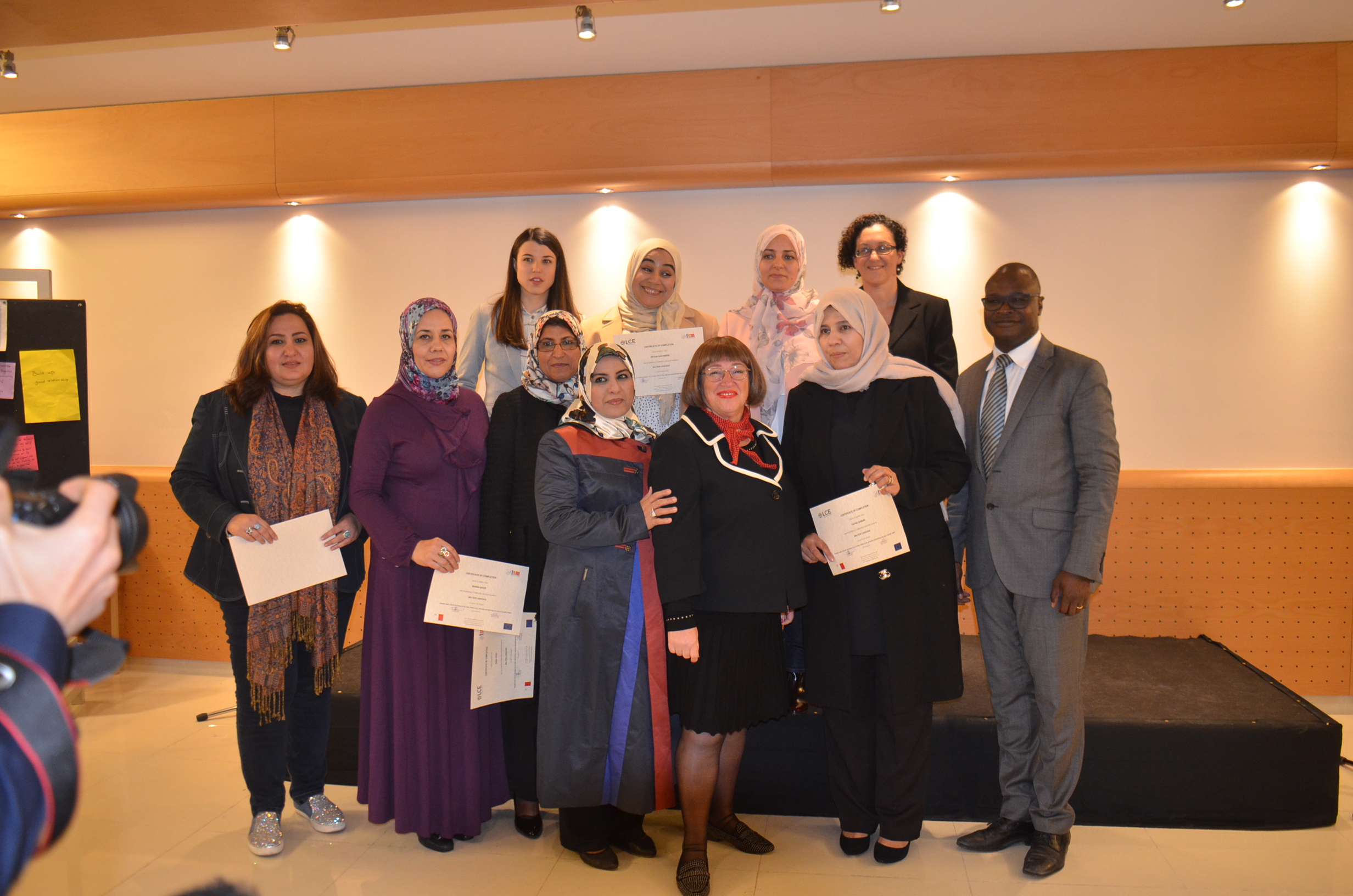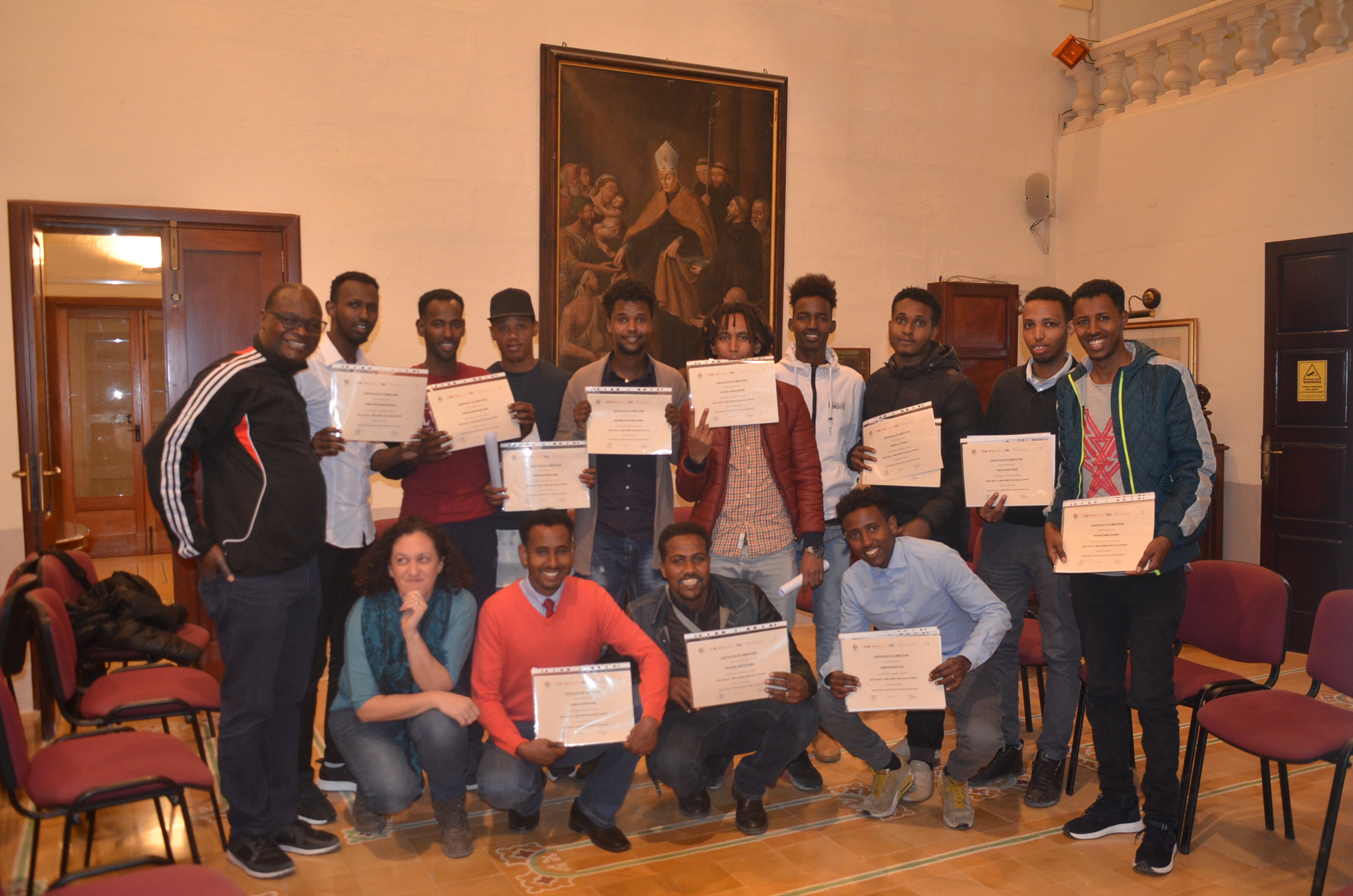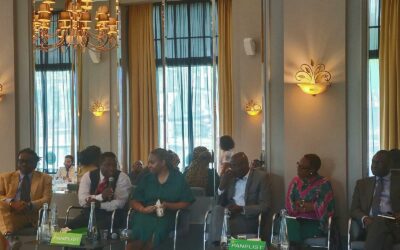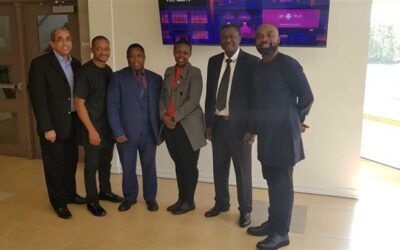‘We highly encourage the cross cultural and continental sharing of experiences which can develop both, the youth in Africa and Europe’
Interview with Dr. Ahmed Bugre, Executive Director, Foundation for Shelter and support to Migrants [FSM], member of ADEPT based in Malta
- Could you tell us more about yourself and your background?
My name is Ahmed Bugre and I come from Ghana. I have been living and working in Malta for the last 30 years. I have practically spent over half of my life in Europe. I read Doctor of Laws’ degree from the University of Malta where I’m currently a visiting lecturer in Migration Law, Society and Policy, and Advocacy skills. I also lecture in Macroeconomics and Corporate Social Responsibility the Nehemiah Gateway University in Albania, and at the Oldenburg School of Business in Germany.
I am the first person of African descent to be the national medal honour (MQR) for our work for the integration of African migrants and refugees in Malta. In 2018, I was awarded the Rotary Club prize for the Peace in the Mediterranean.
I am the chairperson and the co-founder of the Foundation for Shelter and support to Migrants [FSM] which is our diaspora led organisation here in Malta.
- What was the purpose of creating the Foundation for Shelter and support to Migrants [FSM]? When was it created and what are its goals today?
The foundation was founded in 2010 and undergone an organic growth. In fact, its creation coincided with the peak of the boat arrivals from Libya. In fact, the newly arrived migrants and refugees from sub-Saharan Africa tackled the lack of accommodation, service provision, medical care and education. Therefore, I started working in the refugee camps, migrant detention and open centres. Then, the government of Malta invited me to run one of the largest open centre in Malta called the Marsa open centre.
Afterwards, I have decided with four other people from the centre who were diaspora leaders, to create the foundation mainly for three reasons. The first reason laid in the creation of a facility for asylum seekers, refugees and migrants with trauma in order to provide them a comprehensive assistance and support they needed after being released from the detention centres. Many of them would remain on the streets and take the way of alcoholism and drug abuse because of their trauma. That is why, there was a need to provide support in terms of temporary shelter to people until they find a proper accommodation.
The second reason aimed at addressing the need for social services and namely the medical intervention, trauma counselling and education. In fact, if African migrants were going to integrate in Malta, they will have to get some education.
Finally, the third reason was to ensure job opportunities to migrants and refugees that decided to integrated the Maltese society. We ensured them the access to various training programmes available within the open centres in order for them to be able to secure a job and a decent living. Today, we work to follow the same objectives and much more, we are now providing legal counselling to migrants, asylum seekers and refugees.
At the FSM, our activities are based on four major pillars: temporary shelter, medical and psychological assistance, education and advocacy.
- What are the projects and fields of activity of the Foundation for Shelter and support to Migrants [FSM] and how would you maximize your impact on the continent?
At the FSM, we run three projects per year. Currently, we are running a project with the support of the European Asylum, Migration and Integration Fund [AMIF], which aims to develop Migrant Adult Learning for Malta. In fact, we are training teachers who will help migrants learn English and Maltese, in addition to cultural orientation, employment legislation, accommodation and residence in Malta.
We have two other smaller projects which are supported by Erasmus+ aimed at facilitating migrant inclusion in education. In fact, last year we focused on education and this year we’re focusing on mental health. This project is supported by the Maltese government through the Ministry for Health where we visit all the mental health hospitals and prisons in order to support migrants who are in distress and help them to integrate into society.
Through our work, we aspire to skill migrants with knowledge and capacities that can benefit both, their country of origin and stay. In fact, the idea is to turn those migrants into developments agents who transfer skills and knowledge to their home countries and communities in Africa.
Furthermore, the FSM is actively working on some projects with the African Union. For example, we are currently engaged in the mapping of the humanitarian instruments and supporting the African Union to build up a training institute on law and humanitarian instruments.


- What message would you like to send to other diaspora organisations? To the leaders of the EU and the AU? To African youth?
Most of our work at the FSM is done with youth. In fact, FSM is the founder of the third country nationals support network which is the platform that gathers 24 migrant organisations in Malta. We try to work in terms of meeting the needs of individuals, but also to work at the community level, addressing youth challenges. We have the youth wing of the refugees called spark 15 which is the first youth refugee-led NGO that aims to encourage young refugees to become active participants and agents of inclusive societies in Malta.
In fact, the average age of refugees in Malta is 29 years. We provide them with training, capacity building and counselling with leadership development. We also participate in the National Youth Forum and the National Youth Parliament. Actually, through our programme we encourage the involvement of youth refugees in the civic debates of Malta and we provide them space in the Parliament where they could explain the needs of the Diaspora.
The contribution of African youth to our continent can be immense as most of the youth in Europe have skills and competencies that many young people in Africa don’t have. In addition, many young people in Africa have competencies that many don’t have in Europe. Therefore, we highly encourage the cross cultural and continental sharing of experiences which could develop both, the youth in Africa and Europe. For example, we believe that when diaspora youth go to Africa, they see opportunities and they contribute to building up their peers there. Nevertheless, I hope that the contrary could be possible as well, where Europe can become a space for expression and thrilling of the African youth.
I truly believe that this exchange would be very beneficial, especially, in giving African young people the chance to come to Europe and to learn from the richness of the resources that we have. In fact, any interaction brings development in terms of skills transfer. I believe that it’s not only about money but also about skills and competencies.







